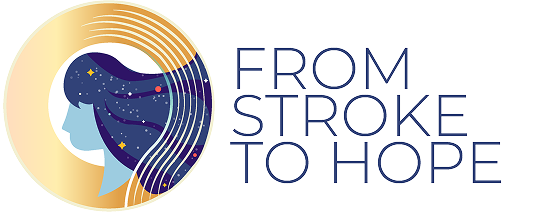One of the most difficult challenges stroke survivors face is isolation. After experiencing a life-changing event, it’s common to feel disconnected from friends, family, and even the world around you. Whether it’s due to physical limitations, cognitive struggles, or emotional challenges, isolation can be a major obstacle to recovery.
Many survivors feel as if no one understands what they’re going through. Some may avoid socializing because they fear being a burden, struggle with speech, or feel overwhelmed by crowds. Over time, this can lead to loneliness, depression, and a sense of being forgotten.
If you’re struggling with isolation, know that you are not alone—and there are ways to reconnect with others, rebuild your confidence, and find joy in social interactions again.
In this blog, we’ll explore:
✔ Why isolation happens after a stroke
✔ The emotional impact of feeling alone
✔ Ways to reconnect with friends and family
✔ How to build new social connections
Why Stroke Survivors Experience Isolation
Many stroke survivors face physical, emotional, and psychological barriers that make socializing difficult. Here are some of the most common reasons:
1. Physical Limitations
✔ Mobility challenges, difficulty walking, or needing a wheelchair can make it harder to leave the house.
✔ Fatigue and weakness may cause low energy levels, making social activities exhausting.
2. Communication Struggles
✔ Speech difficulties (aphasia) can make conversations frustrating or exhausting.
✔ Fear of not being understood or embarrassment over slow speech keeps survivors from engaging in social settings.
3. Emotional & Mental Health Challenges
✔ Depression and anxiety are common after a stroke and can make survivors withdraw from loved ones.
✔ Feelings of grief, anger, or frustration over life changes can make it hard to interact with others.
4. Changes in Friendships & Relationships
✔ Some friends or family members may not understand how to support a stroke survivor.
✔ Social invitations may decrease, making it feel like people have moved on.
5. Loss of Independence
✔ Relying on others for transportation or daily tasks may make survivors feel like a burden.
✔ Fear of needing help in public can lead to avoiding social situations altogether.
The Emotional Impact of Isolation
Feeling isolated can lead to depression, anxiety, and a decline in motivation for recovery. It’s easy to feel like life will never be the same, but it’s important to remember that social connections play a crucial role in healing.
📖 “A friend loves at all times, and a brother is born for adversity.” – Proverbs 17:17
Even small efforts to rebuild connections and reintroduce social interactions can improve mental, emotional, and even physical health.
How to Overcome Isolation & Rebuild Social Connections
1. Start Small & Rebuild Confidence
✔ If large gatherings feel overwhelming, start by engaging in one-on-one conversations.
✔ Schedule short visits with close friends or family members—even a 15-minute call or coffee date can lift your spirits.
✔ Try video chats if in-person meetings feel exhausting.
🔹 Tip: Let people know what kind of support you need. Many loved ones want to help but don’t always know how.
2. Join a Stroke Support Group
✔ Connecting with other stroke survivors removes feelings of loneliness—you’ll meet people who understand what you’re going through.
✔ Support groups (both in-person and online) provide emotional support, encouragement, and practical advice.
🔹 Where to Find Support Groups:
✔ Local hospitals, rehabilitation centers, or churches often host stroke recovery groups.
✔ Online communities (Facebook groups, Stroke.org, and forums) offer virtual connections and support.
3. Find Activities That Bring You Joy
✔ Reignite old hobbies or explore adaptive activities suited to your current abilities.
✔ Consider social hobbies like:
- Art classes
- Gardening groups
- Music therapy sessions
- Community events
🔹 Tip: If mobility is an issue, look for virtual classes or support groups that allow you to participate from home.
4. Get Out of the House (When Possible)
✔ Even a short walk in a park or trip to a café can help break the cycle of isolation.
✔ Attend faith-based gatherings like church services or Bible studies to reconnect with your community.
🔹 Tip: If transportation is a barrier, look into paratransit services or ask a friend or caregiver for help.
5. Strengthen Your Faith & Lean on God
✔ When loneliness feels overwhelming, turn to God for comfort.
✔ Daily prayer and scripture reading remind us that we are never truly alone.
📖 “Fear not, for I am with you; be not dismayed, for I am your God. I will strengthen you, I will help you, I will uphold you with my righteous right hand.” – Isaiah 41:10
✔ Consider joining a prayer group or attending church fellowship gatherings to stay spiritually connected.
Final Thoughts: You Are Not Alone
Isolation is one of the hardest struggles many stroke survivors face, but it doesn’t have to be permanent. By taking small steps to reconnect, build confidence, and lean on faith, you can find joy, support, and companionship again.
✔ Start small—connect with loved ones one-on-one.
✔ Join a support group to meet others who understand your journey.
✔ Engage in hobbies and social activities that bring fulfillment.
✔ Trust in God’s presence and allow Him to guide you through this season.
💙 Your journey isn’t over—there are still meaningful connections waiting for you.
👉 Have you struggled with isolation? What helped you reconnect? Share your experience in the comments.

